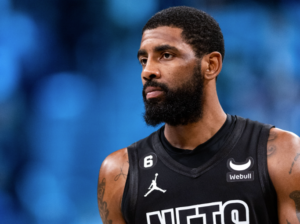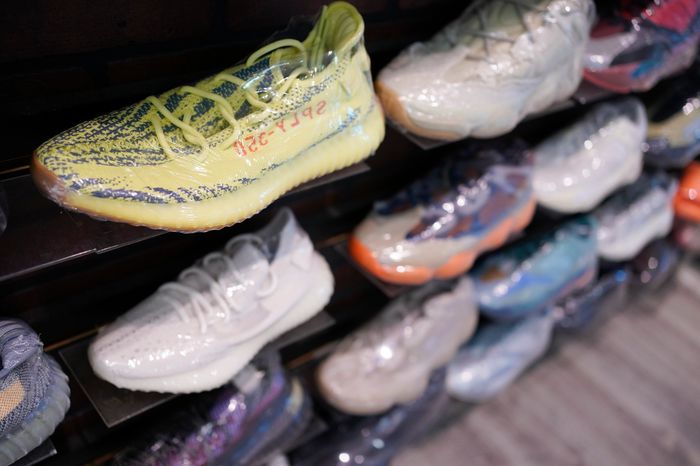Memory does not recall these pages ever featuring or even mentioning a rap star or a basketball star, but we are confident that our readers have wide-ranging and catholic tastes so we are sailing forth here undaunted. Plus, there should be a first time for everything.
Within the past couple of weeks, American musician and rap star Kanye West made remarks that caused Adidas, the global sportswear brand, to terminate its partnership with him, and meanwhile the basketball star Kyrie Irving also said things that caused Nike to break off its partnership.
Now, there are no heroes in this story. No one is as pure as Caesar’s wife or anything remotely close to that, but nevertheless we think there’s a moral lesson– a fable if you will– that is worth a moment’s reflection. It’s in how these two similar-sounding episodes unfolded and the very different business and strategic impacts each had on Adidas and on Nike.
As The Wall Street Journal’s Ben Cohen (author of the “science of success” column) put it the other day:
Two rivals face similar crises at the same time. They react in very different ways that reveal a great deal about themselves.
This is what happened to Nike Inc. and Adidas over the past few weeks as the sneaker giants found themselves at the center of dueling case studies in corporate behavior. […]
The outcomes looked almost identical. The process wasn’t. The responses to their predicaments actually had [nothing] in common.
I mentioned Caesar’s wife, and both companies are amply sophisticated and keenly aware of the chance that high-profile celebrities selling their name could abruptly blow themselves up that they disclose it in their corporate filings as a material risk.
As Adidas put in its most recent annual report:
“the company is exposed to a multitude of business partner risks” through its relationships with athletes and creative partners
Nike uses broader language but with the same import. Under “Risk Factors” you find prominently listed
adverse publicity and an inability to maintain NIKE’s reputation and brand image,
So what happened?
Essentially both celebrities turned themselves into public relations kryptonite end corporate persona non grata in full caps italics and bold overnight. Kanye West kicked off the festivities by posting a mock newspaper front page in September faking a report of the death of Adidas chief executive, Kasper Rorsted, who is alive and well. So far so much bad taste, but the unforgivable occurred in early October when Kanye wrote on Twitter that he would “go to Defcon 3 [sic] ON JEWISH PEOPLE” [emphasis original] in the course of bragging in a recorded interview about his anti-semitism.
While Adidas announced promptly that it was “reviewing” its relationship, it took several more long weeks before they actually dropped him. And perhaps they had their reasons: The financial impact on Adidas is. as that annual report will surely acknowledge next year, highly material. The Kanye-endorsed product line (“Yeezys”) was responsible for about $250 million this quarter alone in net income, all of which will now disappear, and Yeezys accounted for 8% of Adidas $21 billion in annual revenue.
And the very-much-alive Mr. Rorsted has accelerated his planned departure so that the newly hired CEO (Bjorn Gulden, from Puma) can step in and start dealing with the Yeezy fallout.
And over at Nike?
The Guardian provided the background nicely:
Irving signed with Nike in 2011 and had a signature line of shoes since 2014, with his annual endorsement deal believed to be worth at least $11m.
They had methodically built a “Kyrie” [Irving] line of basketball sneakers, becoming one of Nike’s best sellers in that sport, with a broad array of styles drawing kids and others to its continually refreshed models and colors, and a manageable middle class price point of $120/pair.
The combination of availability and affordability make Kyries the footwear equivalent of a generic drug. “They’re not as much attached to Kyrie himself as the price point and performance of the product,” said Matt Halfhill, the founder of the sneaker news site Nice Kicks.
To put it another way, Kyries are no Yeezys.
At that point–last month–Mr. Irving immolated his own credibility and reputation by promoting a movie that dwelt in false conspiracy theories about Jews and attempting to minimize the Holocaust. Whether or not it figured into Nike’s thinking, Kyrie had been a Covid vaccination refuser since, well, as soon as you could be, and was duly banned from playing at home in Brooklyn (or being paid for those games) because of New York City’s vaccination mandate. A loyal correspondent informed me since this column was initially published that he also is a member in the good standing (well, figuratively speaking) of the renowned Flat Earth Society.) Within days of his descent into anti-semitism, and despite a somewhat credible apology out of Mr. Irving, Nike pre-emptively canceled its endorsement contract and pulled the launch of the next “Kyrie” sneaker scheduled just weeks away.
Which brings us to the punch line:
The shoe having more allure than the name of the shoe is why it wasn’t as difficult for Nike to sideline Mr. Irving. The company had the diversified resources to bench one of its most valuable players and barely notice.
Adidas struggled to dump a star. Nike could just do it.
Kyrie Irving (Courtesy CNN)Back to the Guardian, where Phil Knight, the well-known founder of Nike, took no time laying out why the decision to jettison Kyrie was so easy:
“Kyrie stepped over the line,” Knight said. “It’s kind of that simple. He made some statements that we just can’t abide by and that’s why we ended the relationship. And I was fine with that.”
And what has this to do with lawyers and law firms?
A part of me is tempted to end our little essay here, as a parable for the reader to interpret through their own lens, but we deem it imprudent editorial policy to leave our followers in the lurch, so:
You have two very high-profile individuals here, both with powerful and occasionally impulsive egos, probably not predisposed to behave in the most conservative, predictable, low-key manner, and without regard to “a decent respect for the opinions of mankind.” And there’s a lot of money involved.
Nike employed Kyrie Irving strategically in a way Adidas could never have achieved wtih Kanye West. Kyrie was an asset to Nike, we must presume, yet managed in a way that he could be jettisoned at any time, immediately, with no second thoughts or regrets, and immaterial financial fallout. By contrast, Adidas permitted Kanye West to become Too Big, a tentpole of the corporate brand. If his departure caused, or surely accelerated, the departure of Adidas’ own CEO, you know the relationship had become asymmetrical to a fault.
You know what to do with these egos, folks. So, as you have probably heard somewhere, “Just Do It.”





Despite Phil Knight’s (a master marketer if there ever was one) most principled stand on Kyrie, CNN shouldn’t kid itself. Nike has its own TooBig tentpoles. Think Nike would have cut LeBron loose (estimated $600M in 2021) immediately if he said similar things? Axe the Jordan Brand overnight (estimated $4.7B in 2021) in a similar scenario? I highly doubt it. They would have carefully examined every single option they had before resorting to terminating the relationship in those cases. And that takes some time to sort out like it did for Adidas.
I’d also note that the league itself and Kyrie’s professional employer spent quite a bit of time and effort rehabilitating him publicly so he could return to the floor because there are about 5-10 people in the world who can do what he can. So it’s not all as simple as just exiling big, cantankerous egos when things go sideways.